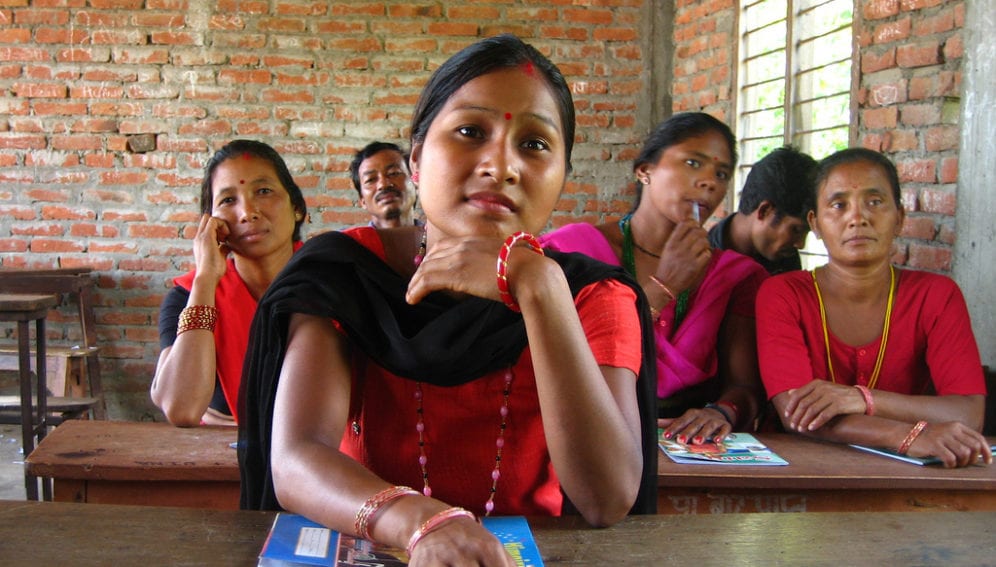By: Dipak Gyawali
Send to a friend
The details you provide on this page will not be used to send unsolicited email, and will not be sold to a 3rd party. See privacy policy.
Former Nepali Minister Dipak Gyawali says development NGOs need to stop acting like sub-contractors and start asking challenging questions.
Many Southern social and environmental activist groups, especially the more militant ones, increasingly hesitate to be called NGOs. Voluntary group, research organization, and civic movement are some of the disparate terms they may use to describe themselves.
Why has what should be a noble calling acquired pejorative overtones? Why are governments bringing them under more scrutiny? Russia, for example, now requires NGOs to be registered as 'foreign agents'; in India they must get official permission to hold international meetings; and even a weak state such as Nepal is about to cancel the legal registration of a gay-rights NGO.
To understand the shifting political climate — and start charting a way forward for NGOs' contribution to development policy — we must look back to the emergence of foreign aid, to the institutions it spawned along the way, and to the declining clout of the aid industry in the current international regime.
Policy not charity
Charity and empathy for the less fortunate have been around since the birth of all major religions, but the secular development enterprise we call foreign aid actually emerged as a foreign policy instrument of the Industrial North in the post-colonial atmosphere after the Second World War.
In the initial post-war years, aid was channeled to government agencies in the South. But by the mid-1980s, as the profligacy of governments addicted to aid began to reach pathological levels, aid offices of the North attempted a more direct intervention through their structural adjustment programmes.
The Washington Consensus, a policy of aggressive market penetration and privatisation in the South (the 'Third World'), effectively shut down national industries. What feeble resistance the Southern bureaucracies showed to being sidelined was countered by those very privatisation policies portraying them as corrupt.
Corruption, often justified, became the excuse to channel development aid through the more pliant NGOs as subsidiary contractors of International NGOs.
The result was a blooming of NGOs in the South, just like algae multiplying in a nutrient-laden lake.
NGOs as contractors
In Nepal, the 1990s saw the number of registered NGOs balloon from four or five dozen to several thousand.
An announcement by an aid agency saying it had money for, say, AIDS awareness, would see the overnight registration of two or three dozen NGOs dedicated to that task. While a few doubtless did commendable work, most were merely contractors implementing a development task as conceived by Northern policy makers.
While previously money went to government agencies who implemented programmes through national or district-level contractors, in this new system, most contractors converted themselves into NGOs. That they could now do so through donor 'institutional support' without having to pay taxes was an added advantage.
This led to a weaker state, and even more corruption than before. Traditional voluntary civic formations such as the guthis (trusteeships mostly of a religious nature), which had managed hospitals and schools, languished for lack of state support and fell into disrepair.
Distorted priorities
Confusing foreign aid with charity, and viewing all NGOs as voluntary civic groups, has been the bane of society-relevant policy formulation in the South and a diplomatic boon for northern foreign offices.
Development priorities have been distorted to suit Northern fads and agendas. Nepal was one of the most blatant of cases, in which Southern NGOs acting as sub-contractors implemented a foreign policy agenda that corrupted politics and governance.
Between 2005 and 2012, almost a hundred billion rupees (just over US$1 billion) were spent to implement a 'regime change', 'conflict resolution' and a 'human rights' agenda, and to 'train' Nepali lawmakers on how to make constitutions that enshrined Northern values.
For instance the agenda of federalism was so incompatible with Nepali realities that the Constituent Assembly, elected with much fanfare in April 2008 as the solution to all of Nepal's historical ills, collapsed ignominiously in May 2012 without even being able to convene a last session. Much of lawmakers' time was spent junketeering with NGOs and their backers in Northern donor countries.
Civic role
Rectifying this pathology is a Herculean task. But a good beginning has to be recognising different types of NGOs and the roles they can play.
Development policy — one that is based on modern science, both physical and social, imbued liberally with healthy scepticism — needs to rest on three pillars: a competitive market, a 'clean' and judicious government that can provide regulatory support, and a vibrant civic movement that can acknowledge the shortcomings of both.
While states and markets have long been around, it is the civic third leg that is either missing or weak in most Southern countries. NGOs can be that third leg — provided we recognise their different types.
Broadly, there are 'service delivery' NGOs that provide useful services but do so only because the state mechanism has failed, and the market for them does not exist. These services need to be initiated and supported until a market can take over, but with proper oversight mechanisms in place.
There is, however, a bigger need for 'activist NGOs'. Unlike their service delivery cousins working within a pre-established framework, they can challenge the injustices within the social or political framework itself. They are the very salt of the earth — very scarce and a measure of how healthy and democratic a Southern society is.
With NGO-led development in disrepute and decline, development can be made healthy only if this tribe can flourish. And that will happen only with support, by local citizens, undistorted by foreign aid.
Because Southern activist NGOs see problems differently, the questions they ask — and hence the science they do to find solutions — are very different from, and uncomfortable to, governments and market players. But plurality is essential for sustainable development — socially acceptable truths lie waiting to be discovered between state, market and civic players through constructive engagement, not to be pre-defined by the world's powerful states.
Dipak Gyawali is Academician at the Nepal Academy of Science and Technology, chair of the Nepal Water Conservation Foundation and a former Minister of Water Resources of Nepal. He can be contacted at [email protected].














